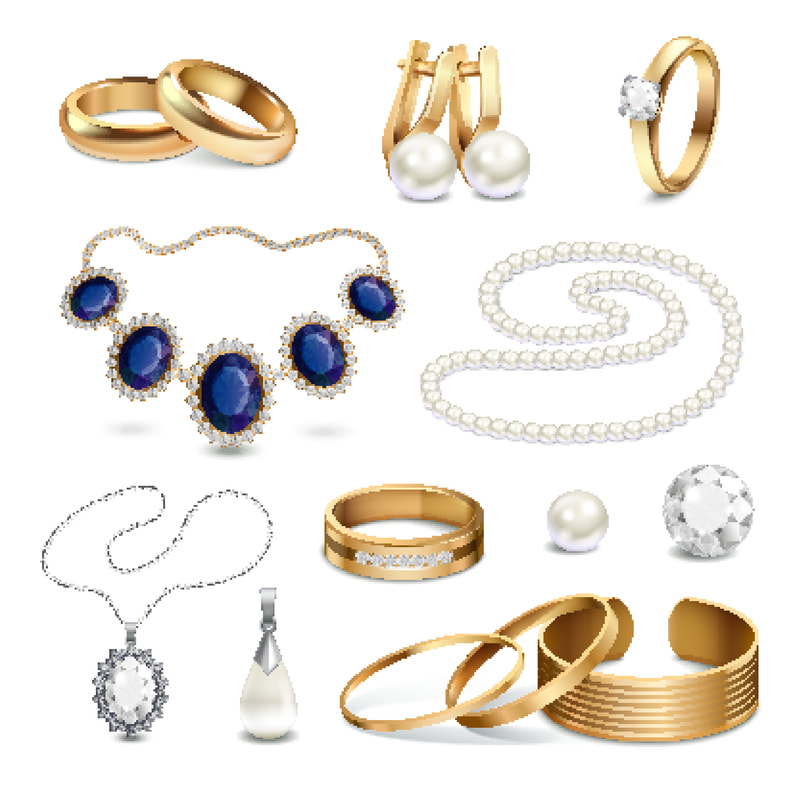|
Absolutely true! Jade is a very, very special gemstone. First because of its rarity, and second for the even greater rarity or scarcity of gem quality Jade. Books have been written about Jade that are more scholarly that I can provide here, but just a few high points. 1. The Chinese call Jade "The Stone of Heaven." Within the Chinese, and many other Asian cultures, Jade has both intrinsic (value in its own worth), and cultural and spiritual value; hence, The Stone of Heaven. 2. When we say Jade we are actually talking about two different stones: Nephrite Jade and Jadeite. Nephrite Jade is a bit softer than Jadeite, but "tougher," Jadeite is the hardest Jade and the most popular. Both Jades in their finest form are very valuable. 3. There is an objective hierarchy of value in colors, with green being the most valuable, but there are also subjective values which can make other than green more valuable. 4. There are many, many, colors of Jade. Here is a bit about each, followed by an alternate view from yet another authority. The Chinese identified "ritual colors" of jade and even spoke of colors "invisible to the eye." In fact, jadeite appears in six basic colors, with many variations. These are green, lavender, red, yellow, white and black. Green, the most important and traditional color, varies through apple green to gray-green and finally black-green. There is a special magical item called Imperial jade. Although originally said to refer to those jades possessed by the emperor and royal family, Imperial jade today should indicate a stone whose color is a deep, translucent green, and is without visible flaws or color variations. Such stones are truly rare. Lavender jade can be quite dark - almost deep plum-purple, and in some cases can take on a blue cast. At its other extreme, lavender jade approaches the pink range - though never achieving it - and lightens to a pale lavender-white. Often, lavender jade exhibits a sugary texture. There are written reports of a blood-orange jade, but most red jade actually ranges from a yellow or beige to a deep russet brown. Black jade is usually nephrite and, in its finer qualities, is glassy black. Surface flecks are common and difficult to avoid on pieces larger than dime size. White jade, or "pure" jade, can be found in a chalky, opaque white to a translucent gray-white. A good polish is essential. And as provided by another source: Green Jade is the most popular color. Meaningful in abundance of peaceful, prosperity and wealthy. Chinese believe that the green jade is the origin of the word. “Money Flows” White Jade meaning is to bring good luck to the owner. The symbol of purity both mind and soul. As well as the longevity. Purple (Lavender Jade) is the symbol of happiness in life. It alleviates emotional hurt and provides spiritual nourishment. Its energy is of the highest etheric spectrum. Black /Gray Jade is the color of immortality. It emanates strong, protective energies to ward off negative assault, physical or psychological, including self limitation. Red Jade (Red-Brown hue) is a stone of life-force energy, dispelling fear that holds one back, and urges one to action. Meaning stimulates vitality. Reduce the anger and stress as well as increase more creativity. Yellow Jade is cheerful and energetic, a stone of assimilation and discrimination.
1 Comment
|
Our Jewelry Blog
Use the Search Box to search our Blog for articles of interest.
Let's Talk Jewelry
Have a question that you would like us to answer about Estate Jewelry? Drop us a note using the form on our "Contact" page with your question and we'll do our best to post your question and our answer here. Archives
July 2024
|


